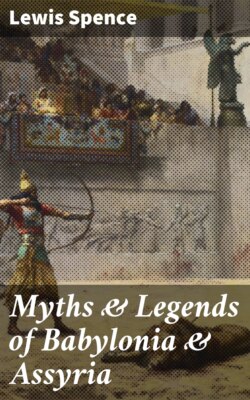Читать книгу Myths & Legends of Babylonia & Assyria - Lewis Spence - Страница 36
На сайте Литреса книга снята с продажи.
The Sacred Literature of Babylonia
ОглавлениеThe literature which this peculiar and individual script has brought down to us is chiefly religious, magical, epical, and legendary. The last three categories are dealt with elsewhere, so that it only falls here to consider the first class, the religious writings. These are usually composed in Semitic Babylonian without any trace of Akkadian influence, and it cannot be said that they display any especial natural eloquence or literary distinction. In an address to the sun-god, which begins nobly enough with a high apostrophe to the golden luminary of day, we find ourselves descending gradually into an atmosphere of almost ludicrous dullness. The person praying desires the sun-god to free him from the commonplace cares of family and domestic annoyances, enumerating spells against all of his relatives in order that they may not place their 'ban' upon him. In another, written in Akkadian, the penitent addresses Gubarra, Merodach, and other gods, desiring that they direct their eyes kindly upon him and that his supplication may reach them. Strangely enough the prayer fervently pleads that its utterance may do good to the gods! that it may let their hearts rest, their livers be quieted, and gladden them like a father and a mother who have begotten children. This is not so strange when we come to consider the nature of these hymns, many of which come perilously near the border-line of pure magic—that is, they closely resemble spells. We find, too, that those which invoke the older deities such as Gibi the fire-god, are more magical in their trend than those addressed to the later gods when a higher sense of religious feeling had probably been evolved. Indeed, it does not seem too much to say that some of these early hymns may have served the purpose of later incantations. Most of those 'magical' hymns appear to have emanated from that extremely ancient seat of religion, Eridu, and are probably relics of the time when as yet magic and religion were scarcely differentiated in the priestly or the popular mind.
